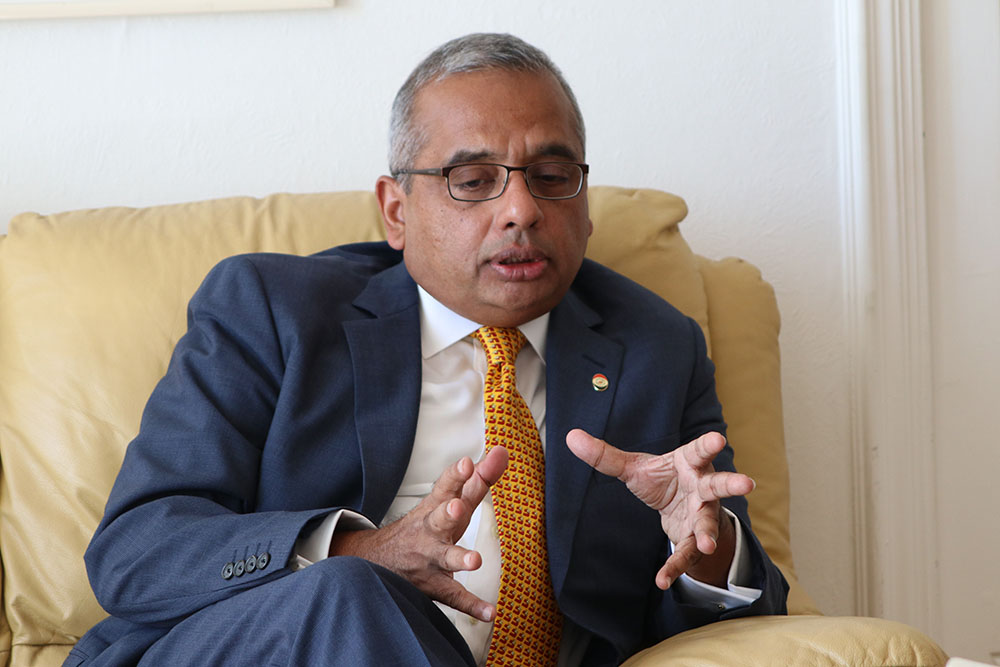UAE. Dubai Duty Free says a US ban of the carry-on of electronic items on certain flights will cost it some US$2 million in revenue this year.
The ban on electronic devices larger than a smartphone covers certain US-bound flights departing the Middle East and North Africa and has been imposed as an anti-terrorist precaution. It covers electronics goods sold in the airport, including duty free stores.

Dubai Duty Free Chief Operating Officer Ramesh Cidambi said in a statement: “Dubai Duty Free sales to passengers travelling to the US is around 2% of our total sales of US$1.85 billion (2016 sales).
“Electronics account for around 5% of the total sales to US bound passengers. As the ban will not affect the sales of telephones or telephone accessories (which are about 55% of the total electronics sales to US passengers), we estimate that the ban will cost us around US$2 million in revenue for the year.”
The figure is only applicable if the ban runs until the end of the year; US officials have said the ban is indefinite.
The International Air Transport Association (IATA) has called on the US and UK governments to urgently find alternatives to their respective bans (the UK has imposed a similar ban to the US but it does not include the UAE).

“The current measures are not an acceptable long-term solution to whatever threat they are trying to mitigate. Even in the short term it is difficult to understand their effectiveness. And the commercial distortions they create are severe. We call on governments to work with the industry to find a way to keep flying secure without separating passengers from their personal electronics,” said IATA Director General and CEO Alexandre de Juniac.
“With the measures now in place, our passengers and member airlines are asking valid questions. Why don’t the US and the UK have a common list of airports? How can laptops be secure in the cabin on some flights and not others, including flights departing from the same airport? And surely there must be a way to screen electronic equipment effectively?
“The current situation is not acceptable and will not maintain the all-important confidence of the industry or of travellers. We must find a better way. And governments must act quickly.”
In the video below, de Juniac discusses the impact of the restrictions on large electronic devices.












